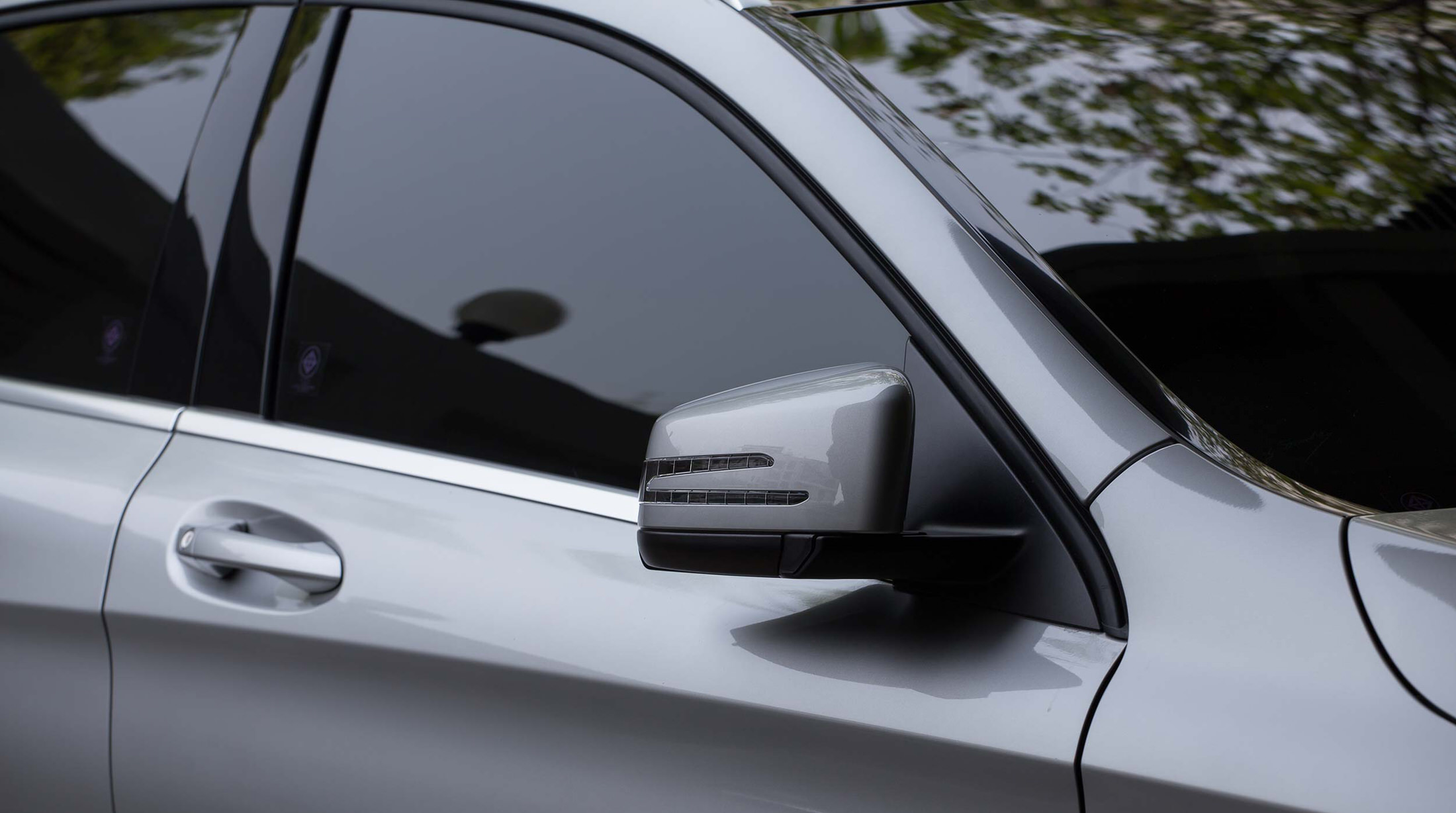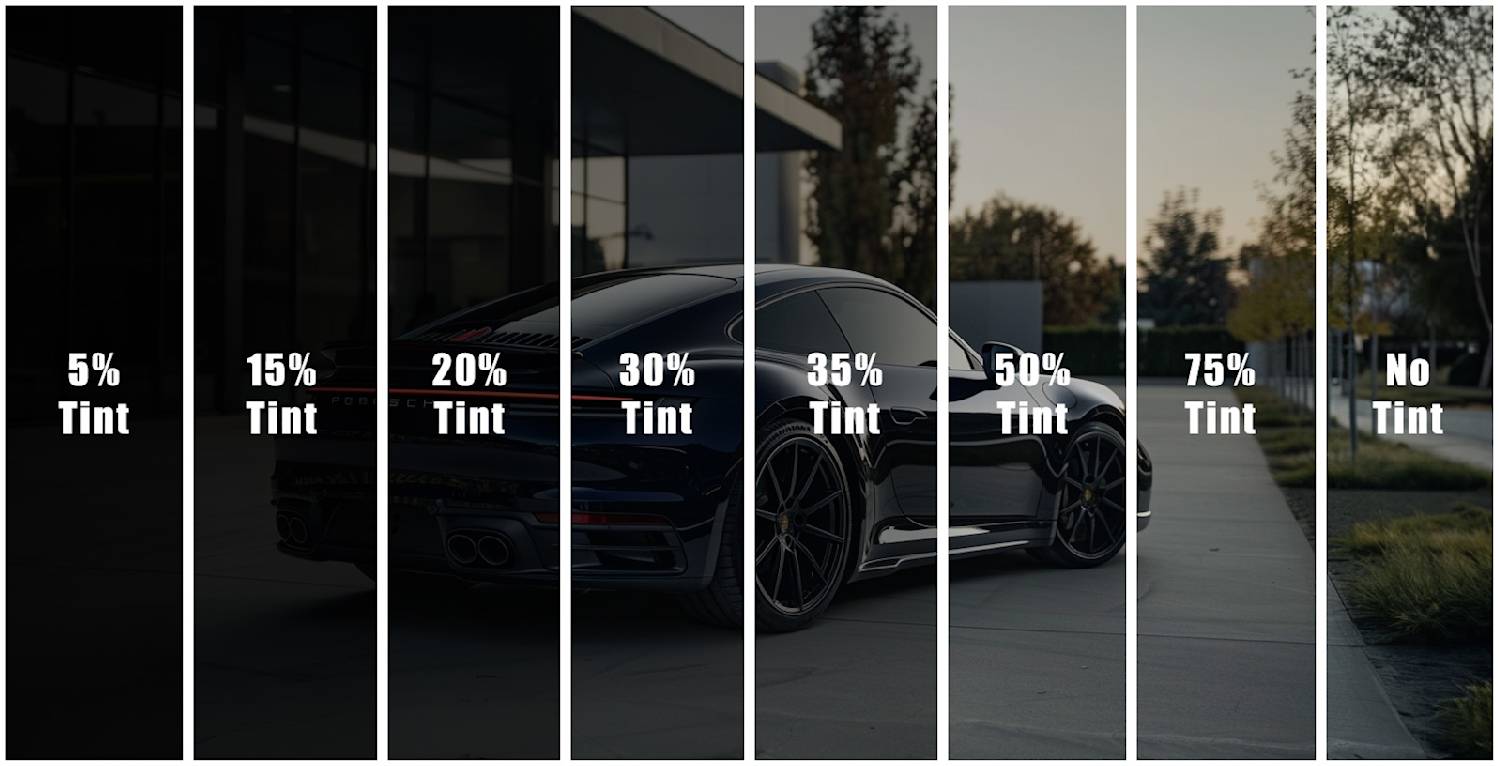The Ultimate Guide to Window Tinting: What You Need to Know Before You Apply
The Ultimate Guide to Window Tinting: What You Need to Know Before You Apply
Blog Article
Home Window Tinting Regulations: What You Need to Know Prior To Tinting Your Automobile
Comprehending window tinting laws is vital for any car owner taking into consideration tinting their vehicle. Regulations vary considerably from state to state, establishing certain limitations for Visible Light Transmission (VLT) percentages, specifically for front-side windows and windshields. Failure to conform with these regulations can cause fines, the requirement to get rid of the color, and difficulties with insurance. As you consider improving your lorry's look and performance, it is vital to comprehend not only the legal effects yet also the practical considerations that come with picking the ideal tint. What elements should you prioritize in your decision-making process?
Relevance of Understanding Tint Rules
Understanding home window tinting regulations is important for vehicle proprietors to make certain compliance with state guidelines. These laws determine the permissible degrees of color darkness and reflectivity, which can considerably differ from one jurisdiction to an additional. Falling short to abide by these laws can cause fines, required elimination of the tint, and possible issues during car assessments.
Additionally, understanding these laws aids vehicle owners make educated choices about their tinting alternatives. Various types of window films supply numerous advantages, such as UV protection, heat rejection, and glow reduction. Nonetheless, without expertise of the lawful limits, automobile owners run the risk of selecting items that may ultimately cause legal problems.
Furthermore, recognition of tinting regulations cultivates a much safer driving atmosphere. window tinting. Excessively dark colors can impair presence, enhancing the risk of crashes, particularly during the night or in negative weather. Police additionally utilize these laws to make sure road security, making compliance not simply a personal responsibility but a legal commitment
State-Specific Tint Laws
Each state in the U.S. has actually established its own certain policies regarding window tinting, showing a diverse variety of requirements and requirements. These laws can differ substantially, impacting how lorry owners come close to installment and compliance. For example, some states permit darker colors on back windows while imposing strict restrictions on front-side home windows.
Furthermore, guidelines usually specify allowable color materials and shades. Specific states ban reflective tints completely, while others may allow them to a restricted level. Additionally, some territories mandate that vehicles with tinted home windows present a sticker label showing conformity with state regulations, giving a clear identification for police.
Enforcement of these regulations also varies; some states are a lot more positive, carrying out arbitrary checks, while others count on grievances or visible violations to start enforcement. Car proprietors ought to be conscious that failing to abide with state-specific tint guidelines can result in penalties, compulsory elimination of prohibited colors, or both.

Legal Color Percentages
Figuring out the lawful color percentages is critical for car proprietors looking for to follow state regulations. Each state has particular laws regulating just how much light should go through the windows of an automobile, which is revealed as a portion known as Visible Light Transmission (VLT) This percent differs significantly across states and can rely on the kind of home window-- front side, rear side, and windscreen.
For instance, some states allow as low as 20% VLT on front side home windows, while others might allow as much as 50%. Windscreen tinting is commonly more limited, with lots of jurisdictions allowing only a narrow band of tint on top of the windscreen. On the other hand, back home windows usually have description much more forgiving policies, with some states permitting darker colors.
It is necessary for automobile owners to familiarize themselves with their neighborhood laws to avoid potential legal issues. This includes understanding just how VLT is measured, as it can vary based on the kind of window movie used. Remaining notified concerning these regulations makes certain conformity and advertises risk-free driving conditions for both the vehicle owner and others when traveling.
Consequences of Non-Compliance
Stopping working to adhere to window tinting regulations can lead to substantial effects for lorry owners. Policemans trained to determine prohibited color levels may release penalties, which can differ by territory yet usually vary from modest to significant amounts.

Insurance provider might additionally penalize for non-compliance, as prohibited adjustments can be deemed a breach of plan terms. If an incident happens., this could influence insurance coverage prices or lead to difficulties in cases.
Ultimately, the consequences of non-compliance expand past instant punitive damages; they can influence a driver's insurance policy rates, legal standing, and general lorry value, highlighting the significance of adhering to neighborhood window tinting policies.
Tips for Choosing Tinting Options
Understanding the ramifications of non-compliance highlights the relevance of making educated options when picking window tinting alternatives. First of all, acquaint yourself with your state's certain regulations concerning tint darkness and reflectivity. Each state window tinting has unique policies that determine the allowable limitations, so ensure you remain within these standards to avoid fines.
Second of all, think about the type of color material. Choices consist of dyed, metalized, and ceramic tints, each offering differing levels of warmth denial, UV defense, and sturdiness. For instance, ceramic colors give remarkable warm resistance without hindering digital gadgets, making them a preferred option.
Additionally, analyze your key objective for tinting. If you seek boosted personal privacy, choose for darker colors; however, bear in mind that this might influence presence at night. On the other hand, if glow decrease and UV security are your main concerns, lighter colors may be enough.
Lastly, consult with an expert installer that is knowledgeable concerning local regulations and can advise premium products suited to your needs (window tinting). Taking these variables right into account will ensure you make a well-informed choice, ultimately improving both your vehicle's looks and performance
Conclusion
In conclusion, familiarity with home window tinting laws is necessary prior to using tint to a vehicle. By recognizing lawful requirements and selecting appropriate tint products, car proprietors can find more info accomplish visual enhancement while staying certified with appropriate regulations.
Recognizing home window tinting laws is important for any type of automobile proprietor considering tinting their vehicle.Understanding window tinting laws is important for automobile owners to guarantee compliance with state guidelines. Some states enable darker tints on back windows while enforcing rigorous limits on front-side home windows.
In comparison, back home windows typically have extra tolerant regulations, with some states permitting darker tints. (window tinting)
In final thought, familiarity with home window tinting legislations is important prior to using tint to a car.
Report this page